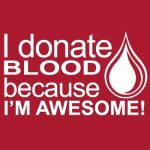 Facebook and their ilk have such huge numbers of people using them it is understandable that organizations of all shapes and sizes have flocked to the site to try and reach a wider audience with their activities. Foremost among these have been non-profits, but the success of these ventures have been disputable to say the least, with accusations of slacktavism emerging as people so often take the easier option of liking something rather than anything more meaningful.
Facebook and their ilk have such huge numbers of people using them it is understandable that organizations of all shapes and sizes have flocked to the site to try and reach a wider audience with their activities. Foremost among these have been non-profits, but the success of these ventures have been disputable to say the least, with accusations of slacktavism emerging as people so often take the easier option of liking something rather than anything more meaningful.
A study published in 2013 for instance found that the more visible the display of support for a charity or cause, the less likely that person was to offer up either time or money in support of that charity. The study chimes with the accusations of slacktavism, suggesting as it does that the easy option of a like is often taken in preference to something more meaningful.
A couple of recent studies suggest things aren’t quite so bleak for charities on Facebook however. The first explored the marriage equality campaign run by Human Rights Campaign, which saw supporters adopt the red equals sign as their profile picture. The campaign attracted considerable support, albeit with a decent chunk of that support often offered in a slightly misguided way. The authors of the study suggest however that any support is better than no support, therefore the campaign was decidedly positive for the charity.
Queensland University of Technology are conducting a study recently looking at how social media can be used to support and encourage blood donation. The study will be looking in particular at whether the charitable act, in this case donating blood, can be tied in with the donors identity, thus offering both parties significant value.
The study will explore whether charities can amplify this value exchange by offering donors the opportunity to ‘show off’ their donation, and thus emphasise the act of giving via their social networks.
“Most donors receive some emotional value from donating such as a good feeling, or a sense of personal fulfillment.
“Some donors, however, do want to receive social value or be recognised for supporting a cause by their ‘significant others’ because it is an important part of who they are as a person.
“My research is looking at how online recognition such as a conspicuous virtual token that donors can put on their Facebook page or other online networks that identifies them as a supporter of the organisation.” said researcher Kathleen Chell.
The study will hope to determine whether the social recognition could not only encourage first time donors to commit to regular donations, but also to prod their friends into donating too.